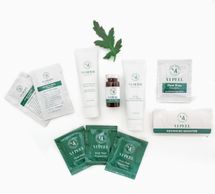Do Eye Creams Actually Work for Wrinkles?
Look for a few key ingredients in skin care products if you want to deal with wrinkles — but no product will keep your face crease free.
By Annie Sneed
Q: Does eye cream really prevent wrinkles?
Whether it’s from aging, sun exposure, smoking or repetitive squinting, smiling, laughing or frowning, nobody is immune to the skin creases and fine lines that come with age. And the area around the eyes is particularly susceptible to such changes. “The skin under and around the eyes is delicate and thinner,” said Dr. Sara Perkins, an assistant professor of dermatology at the Yale University School of Medicine. “It is a place where wrinkling and lines can show up more prominently than other areas of the skin.”
While some people don’t care much about their eye wrinkles, others may want to slow down that aging process and keep their skin looking younger. This may lead them to wonder: Are those tiny, expensive jars of eye cream worth it? Here’s what the experts say.
Can eye cream or other facial skin care products help with wrinkles?
Dr. Perkins and Dr. Zakia Rahman, a clinical professor of dermatology at Stanford University, said there is evidence that eye creams — and even regular facial moisturizers — can help prevent and repair wrinkles. But there’s one big caveat: They must contain some key active ingredients: retinols (or prescription retinoids) or vitamin C.
“When we’re talking about the efficacy of eye creams, it’s not fair to lump all eye creams together,” Dr. Perkins said. “Because some of them may just be glorified moisturizers without any biologically active ingredients in them.”
Retinols and prescription retinoids are closely related chemical compounds derived from vitamin A. Retinoids are typically prescription strength, while retinols are generally found in over-the-counter products. These substances can increase cell turnover, prevent collagen breakdown, produce new collagen and create more hyaluronic acid (a substance the body produces naturally that helps keep the skin hydrated). Experts say there is good evidence that these compounds can help prevent and improve wrinkling. “Every dermatologist I know, myself included, uses these as part of their skin care regimen,” Dr. Rahman said.











